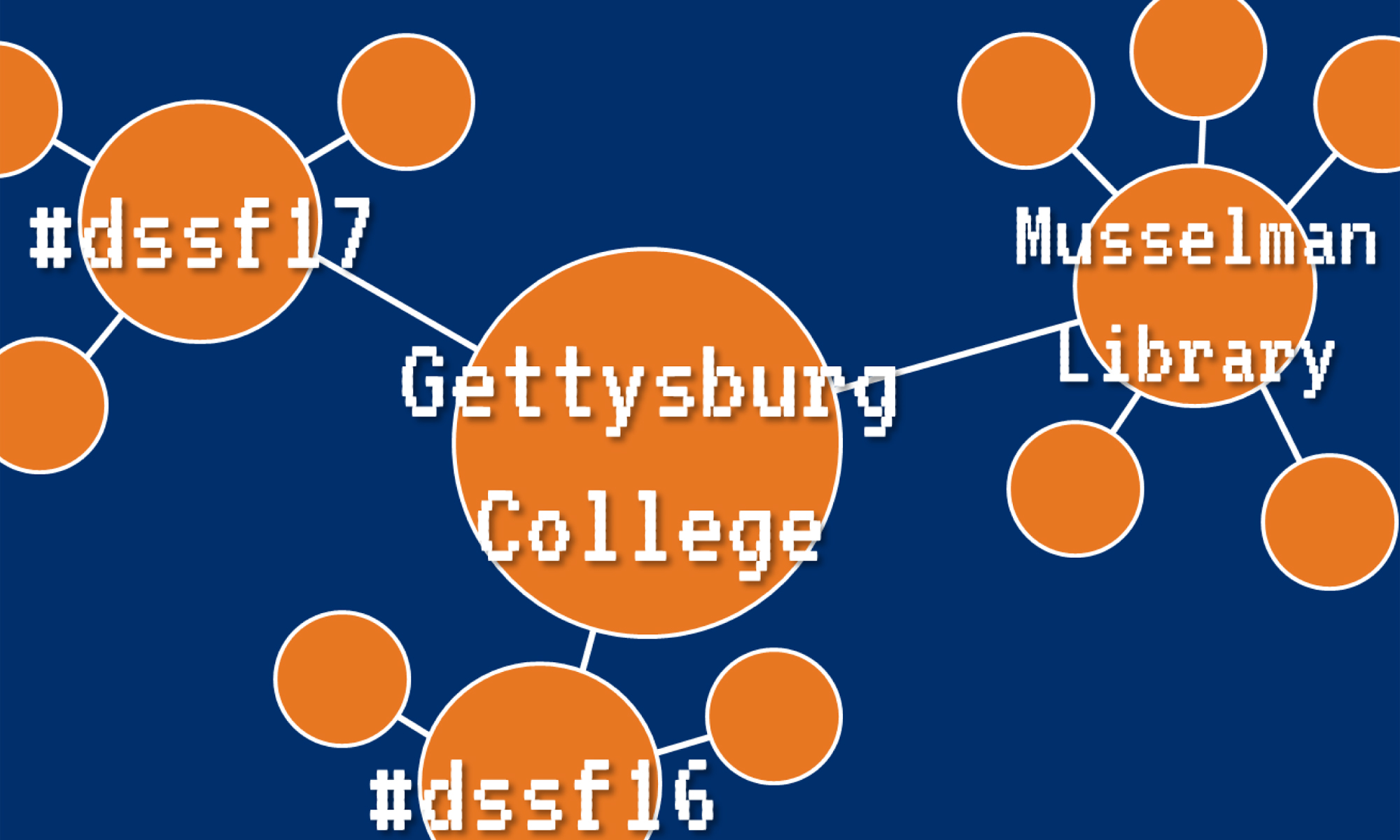One thing that struck me about this article was that it addressed my confusion about my frustration about the field that I’ve been feeling lately. After being immersed in DH and the DH community for about a year, I’ve noticed something: we never stop asking what DH is. We opened last summer with the question “what is DH?” and we opened the first conference of the summer, a year later, the PALA workshop opened with asking “what is DH?”. As DSSFs we fully expect to be immersed in the field so questions of asking what the field is, in the beginning, is expected. However, these articles and discussions are not easy to understand for beginners and use jargon like “pedagogy”, “Community of practice”, and even “Digital Humanities” itself. If you’re being introduced to DH and have no idea what Digital Humanities is, these articles and discussions will confuse you. The only conclusion I can draw from this is that discussions about “what is DH?” is for audiences who are familiar with DH, not people just being introduced.
So why do we always ask what DH is? Haven’t we come to a pretty solid conclusion as a community right now? If DH prides itself on openness and accessibility, why are discussions and papers that discuss the concepts and definitions of the field littered with jargon and theory, assuming that their audience are never beginners in DH? I get it. Once you’ve been so immersed in a field you forget what it’s like to be a beginner, for everything to be new, strange, and confusing.
There is elitism in DH. We have built ourselves an ivory tower. Say what you want about History and History’s high ivory tower of academia but there is a low barrier of entry into the history community because anyone could pick up a book, go to a historic site, see a sign, hear from their family, etc. and be touched by history and pursue it. There are millions of non-academic historians and millions of academic historians as well. There is elitism in history but in a different way. History is like a backdoor speakeasy, where you can get into the main establishment easily, but to get into the academic area, you need to know a password or know someone to get in. Digital Humanities is more like the Ravenclaw common room, where you must answer a question to get in at all and much like in the Harry Potter books, there will be frustrated students who do not understand that will be left outside.
In my experience with teaching digital tools to students who weren’t necessarily in DH, I wouldn’t just hand them Lisa Spiro and say “Welcome to DH, now tell me: what is DH?”. That’s not what makes Digital Humanities. While readings do help further understand the field, I don’t feel they’re as constructive to beginners. I feel like I’ve learned the most about the field by doing my own projects, looking at and teaching tools, interacting with others projects and talking with other scholars.
While I agree with the author on many things, I disagree on one thing: I do believe that Digital Humanities can have a “Dead Poets Society moment”.
“In many ways, I think the way we often frame DH tries a bit too hard to achieve a Dead Poets Society moment: “your other teachers taught you literature with close reading and literary criticism, but in my class we’re going to disrupt that stale paradigm using computers. Now rip up your books and pull out your laptop!” But those attempts fall flat, for all the reasons I have tried to articulate thus far.”
-Ryan Cordell, “How Not to Teach Digital Humanities”
I don’t know if you’ve seen Dead Poets Society but ripping pages out of the book is not the purpose of that scene.
“We don’t read and write poetry because it’s cute. We read and write poetry because we are members of the human race. And the human race is filled with passion. Medicine, law, business, engineering, these are all noble pursuits, and necessary to sustain life. But poetry, beauty, romance, love, these are what we stay alive for. To quote from Whitman: “O me, o life of the questions of these recurring, of the endless trains of the faithless, of cities filled with the foolish. What good amid these, o me, o life? Answer: that you are here. That life exists, and identity. That the powerful play goes on, and you may contribute a verse. That the powerful play goes on and you may contribute a verse. . .What will your verse be?”
-Robin Williams, “Dead Poets Society”
The human race is still filled with passion. Even with all the assumptions that technology is making us lifeless and brain-dead, we are undeniably filled with passion. Just like the author in his own course makes a comparison between Digital Humanities and Traditional Humanities by recalling that the Gutenberg Press was once newfangled technology and its opposition by traditional fields at the time; humanity has always found a way to express themselves and has adapted to new technology. The reason why that scene is so powerful is because everyone can relate as members of the human race that feel and love and dream. Instead repeatedly asking “What is DH?” to beginners who don’t even know what the acronym ‘DH’ is, maybe we should finally give an answer and that answer could be as simple as “It exists. It is an expression of life and identity through a new medium.”. Instead of focusing the field on that one question, we should focus on engagement and contribution because that powerful play goes on, life goes on, and we may contribute a verse. Asking “What is DH?” for the 1000000000th time might sustain the life of the field, but digital projects and engagement are what makes the field worthwhile.
-Julia


